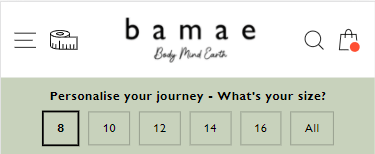Have you ever gone to the gym, pumped and confident, only to be stricken by a wave of self-consciousness? Do ever feel the atmosphere inexplicably change at work and begin dreaming up ludicrous scenarios, like you’ve just been outed as the fridge thief? Do you find yourself overanalysing things?
Is this anxiety? Perhaps. But I think it also encapsulates the irrational side of self-doubt.
Oh, self-doubt, that familiar fiend. It clings to me like a bonobo ape and I am its disgruntled mother. Worst still, I’ve gotten comfortable with it being there (just look at him! Little clingy hands). Sleeping is a chore (he pulls my nose and ears) and I have quietly decided not to attempt laborious tasks for fear of him pounding my back and nagging. Nagging is tough: all I want is a bit of peace and banana. Banana.

Against conventional wisdom
I am sure you can relate to this. Clinical psychologist Robin F. Goodman has tried to measure self esteem in women, finding startling implications from a young age. ‘Girls’ self-esteem peaks when they are 9 years old, then takes a nosedive’ she observes.[i]
It seems absurd that, on top of everything else, we feel the need to hold ourselves back. There are enough obstacles already; the cosmos is littered with orange cones, potholes and occasionally, just when things are going well, a tractor trundling across our passage, followed by the entire cast of Charlotte’s Web.
With things in this state, how do we deal with ourselves? We could, as the experts say, remodel our work, friends, environment and habits to block out any noise. We could evaluate our negative thoughts, writing them down in a diary as the NHS suggests[ii], or even put on the proverbial boxing gloves and enter the ring of professional therapy, psychiatry or life coaching. Though daunting, this last option has numerous science-backed benefits, and can certainly be a brave and necessary step for those experiencing debilitating self-doubt.
Yet for others the issue may prove to be a bit more abstract and illogical, traversed only with a less clinical approach.
Self-doubt, after all, is a complex beast and deserves a nuanced understanding. Like anxiety, which has been linked to improved competitive performance[iii], I feel its benefits are underappreciated. It certainly serves a social function as an ego counterbalance; It can keep us in check. What’s important is not letting it have its way to the point of dysfunction.
Bearing this is mind, here are a few alternatives to touted ‘cures’ of self-doubt:
Removing negative stimuli
The logic here is sound: avoid bad things as much as possible (the news, say, or toxic people) and you will be able to stabilise your inner voice. Or, maybe it’s a matter of balancing out the negative with words of praise. Balance… ahh, so nice I’m visualising a see-saw.

The language used often evokes the quashing, extinguishing or neutralising of a ‘threat’, as if all you need is simply enough good vibes and the issue will be bye-bye. Ran out of good vibes? Get some more!
No, of course not.
My advice is to, rather than antagonise the sensation, gently tell it to sit in the corner and come back when it has learnt some manners (don’t shout no, unless it’s tugging on a filing cabinet). After the fact, instead of stowing it away and focusing on those Good Vibes I think it’s worth coming to terms with what happened, how you dealt with it and what says about your reaction to that stimuli. Find the logic to it and shape it into something more useful for next time. For example: ‘my co-workers don’t like me’ becomes ‘I will give my co-workers every reason to like me. If they don’t, that’s their problem.’ I guess I’m preaching a combination of stoicism, pragmatism and accountability– which is hardly revolutionary.
Surrounding yourself with positive influences
I frankly envy anybody who can achieve this. In England, doubt (if not full-blown pessimism) is our bread and butter. While it’s easy to attest to avoiding toxicity, the reality is that we will find ourselves unavoidably surrounded by negative voices because they are family, in the workplace or deceiving aspects of things we love. Why this would bring us down is not so abstract, the great mystery is why we have evolved to internalise it to the extent that we do.

Here’s a start: instead of relying on others to ease our minds (a fine supplement) I think we should take it upon ourselves to enact a change, whether this is attempting to resolve a difficult relationship, discovering the best way to control our environment, or helping someone out. Of course, this is a fair bit harder since it puts us in a vulnerable position, but this way at least we have a sense of autonomy– and that feels good, even when failing.
Helping others or ‘getting outside yourself’, of course, can boost your esteem in unexpected ways. Dealing with your own insecurities explicitly can be fruitless, so this offers a good distraction, if not an inadvertent remedy to your insecurities.
Perhaps it is you who will become the positive influence. I know, shocking.
Asserting yourself
One fondly recalls a comic scenario from the beloved animated children’s television series SpongeBob SquarePants, in which the insidious Plankton attempts to manipulate our eponymous hero into retrieving his ‘rightfully owed’ ice-cream refreshment from a passer-by eel fellow, so that he (the sponge) might assert himself for the villain’s own means. A textual excerpt:
Plankton: There's the guy who took your ice cream. Don't you want it back?
SpongeBob: Ice cream!
Plankton: [to eel] Listen, you! My friend's got something to say! [Eel turns around]
Eel: What, who said that? [to SpongeBob] Was it you?
Plankton: Tell him off, SpongeBob. Assert yourself!
SpongeBob: That's my ice cream cone!
Plankton: Great! Now let him have it!
SpongeBob: You can have it. [iv]
I think this sketch best summarises my feelings on becoming assertive – namely, that we don’t all have it in us. Not to discourage standing up for yourself, which is easy to condone. My gripe is that ‘performed’ assertiveness is once again merely a cover up of, rather than true engagement with, the often intangible nature of self-doubt: you can act assertively and still feel weak.

My alteration, without being a pushover, is to write down a set of values that you believe in. These might concern things that make you feel hopeless like sexism, jobs or politics, but are still within your power– in a small way– to address. Even if the belief is selfish, it should make you feel a bit more confident in decision-making and interactions. Why? Because this way you’re acting on convictions, not flimsy desires.
Everything else
A few others cropped up a lot. Here are my quick-fire takes.
Goals: I do not like setting life goals for myself, since a goal is something you are supposed to reach, so if I don’t I will be eternally disappointed, and if I do then there’s no saying how long that satisfaction will last. This is why I prefer beliefs and values, since they don’t depend on completing anything, but still have a purpose.
Comparing yourself to others: the common advice is not to do this. Unfortunately, I think some part of me loves it. There’s no doubt we are competitive creatures by habit, why suppress this fact?
Evaluating childhood: well actually it’s true, all problems stem from childhood. The reason you doubt yourself? One time, and you won’t remember this, it was a hot day and you asked Daddy for an ice cream. But Daddy was broke and said no, don’t ask stupid questions. Now your subconscious thinks everything reasonable is a stupid question.
So is it really worth evaluating your childhood? No, don’t be stupid.
Affirmations: otherwise known as lying to yourself, really enthusiastically. Worth a shot.
Is this the end?
For many years I fed my bonobo ape child assorted nuts, chopped fruit, some hot milk with honey, and bread that had gone a bit stale. Yes, I have given him more love and attention then he is probably owed. Now he’s getting big and by all accounts well on his way to being a very non-dependent ape, which is jolly good news for all. I think he’s eyeing a HR job in the city.
I am always critical of those super-attractive short-term solutions to life’s afflictions, because, alas, we are in this for the long run. Buckle in.
Not that this should depress you. Life is like a Jackson Pollock painting: it’s about the process, not the result. And the process is a bloody mess. And you’ll be worth a million bucks by the end of it. Hypothetically.
Ignore all of that, just read this bit
Really the solution was so simple it nearly completely evaded us. You must doubt your doubts. That’ll put them in their place.
[i] HuffPost. (2010). Building Our Daughters’ Self Esteem, By Starting With Our Own. [online] Available at: https://www.huffpost.com/entry/building-self-esteem-buil_b_600860 [Accessed 13 Sep. 2021].
[ii] NHS (2021). Raising low self-esteem. [online] nhs.uk. Available at: https://www.nhs.uk/mental-health/self-help/tips-and-support/raise-low-self-esteem/.
[iii] Hardy L, Hutchinson A. Effects of performance anxiety on effort and performance in rock climbing: a test of processing efficiency theory. Anxiety Stress Coping. 2007;20(2):147–161. doi:10.1080/10615800701217035
[iv] ‘Walking Small’ (2000) SpongeBob SquarePants, S01E37. Directed by Stephen Hillenburg and Aaron Springer. Written by Aaron Springer, Erik Wiese and Mr. Lawrence. Nickelodeon, March 22nd.




